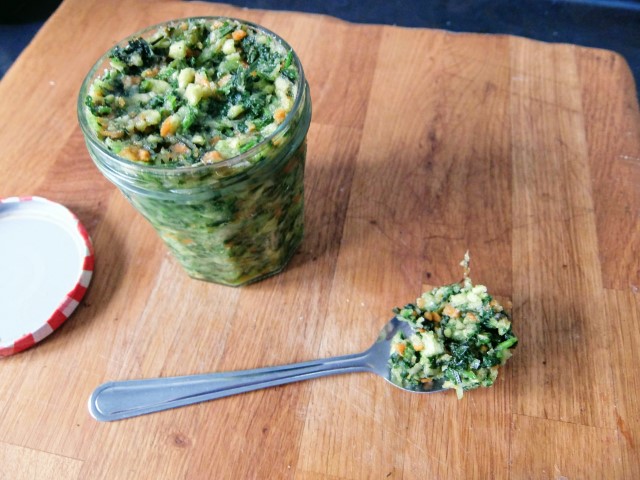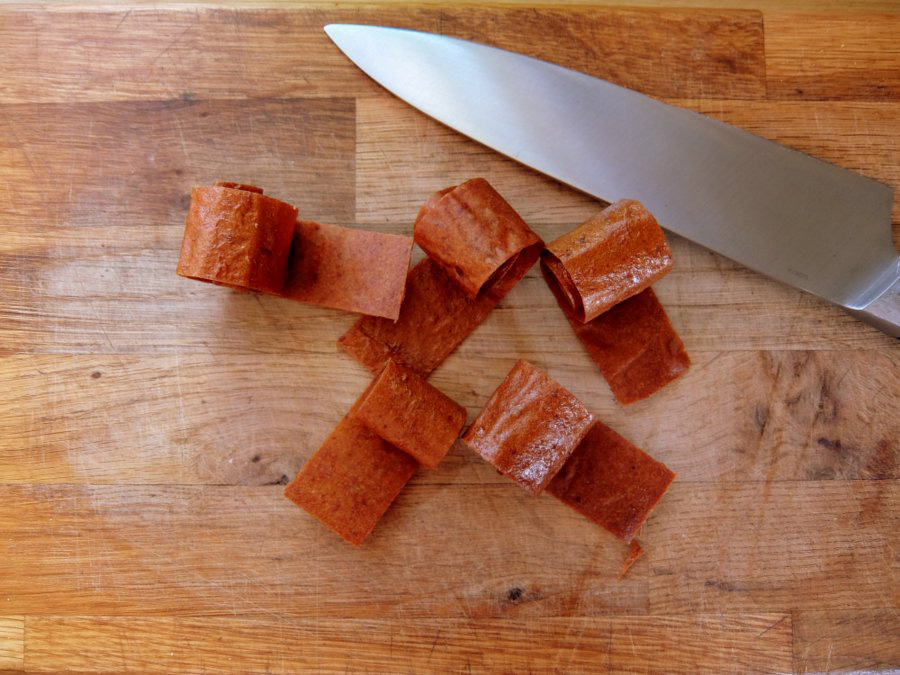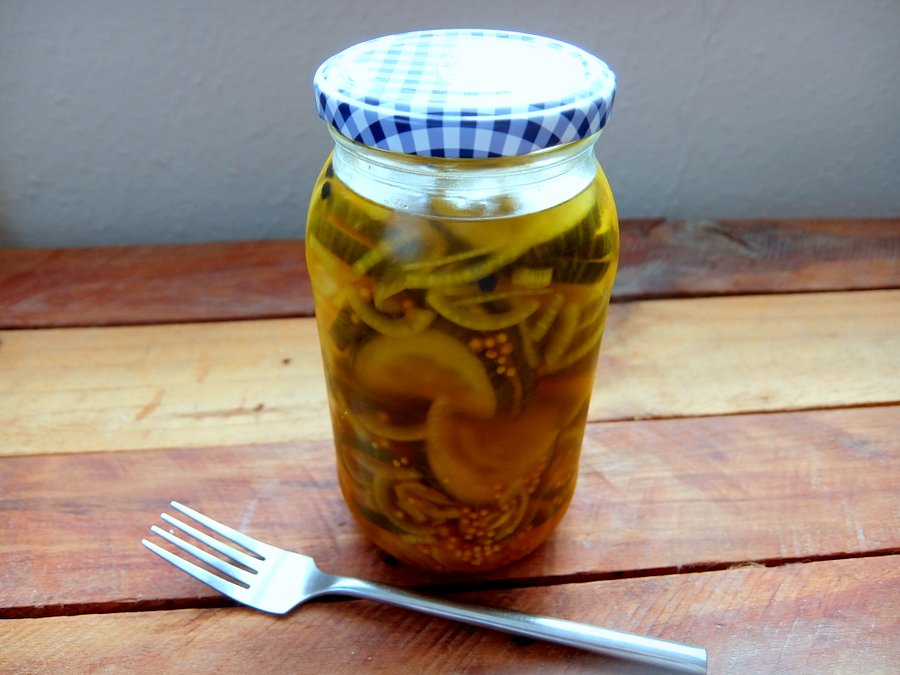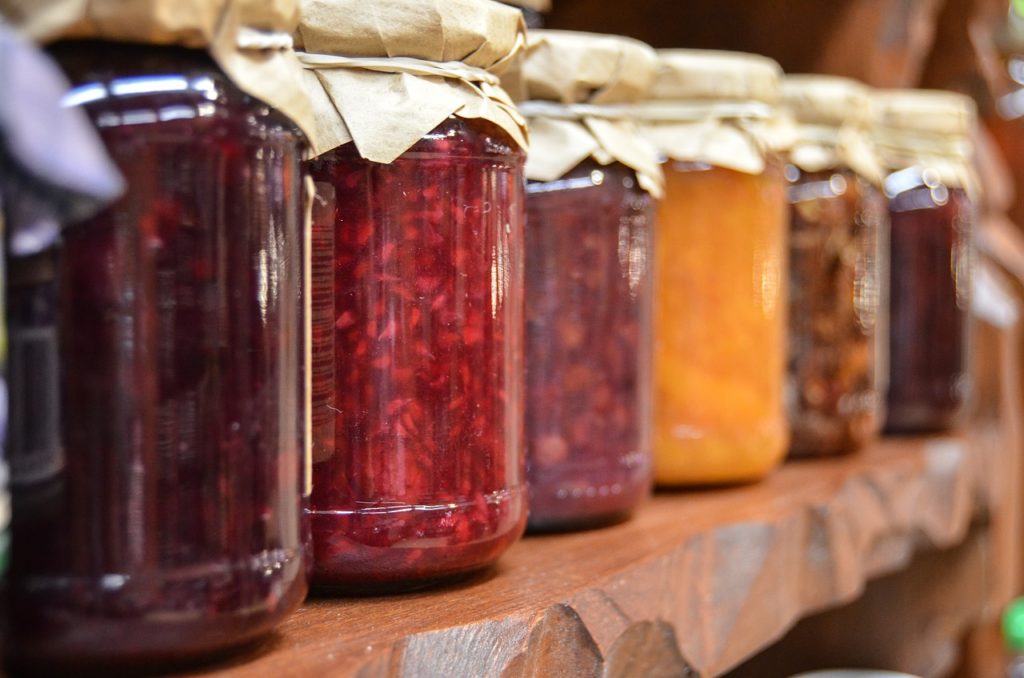Salted herbs are a great addition to any kitchen pantry. If you want to eat in season, and I think everyone should to some degree try and eat seasonally, then salt preserved herbs are a must.
Salted herbs are quite common in certain parts of the world. Places in Canada for example where the cold season is harsh compared to most places have traditionally been preserving herbs in salt for a very long time.
I first read about this technique in the excellent Joe Beef book. The recipe I have used here is adapted from the recipe in their book. It is well worth checking out and has other preserving recipes as well.
Most leafy herbs like parsley, chives, chervil and so on die back in the winter in temperate climates so the chance to preserve their flavours is really useful. Methods like drying are not that great for leafy herbs which lose their delicate fragrance and zestiness. Salted herbs, on the other hand, retain all of the delicate (and punchy) aromas and act as a seasoning to a dish at the same time.
Salt is a natural preservative and has been used to preserve foods for thousands of years. Salt is hygroscopic and draws moisture out of the herbs at the same time some of the salt will dissolve. It is this process that prevents any microorganisms from growing on foods preserved in salt.
Table of Contents
How To Preserve Herbs In Salt
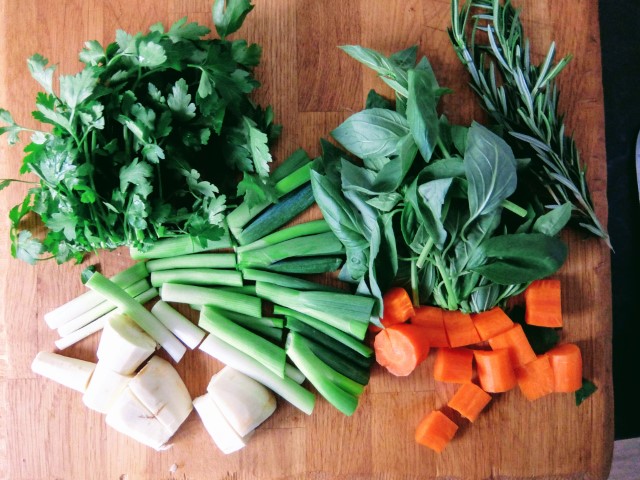
The process is simple and best used to preserve what you have an abundance of. I have included vegetables in my version and this is traditionally what the Acadians would have done. Don’t feel you have to, if you want, just preserve the herbs.
Ingredients I Use:
- 1 bunch of Chives
- 1 bunch of Parsley
- 2 sprigs Rosemary (leaves picked)
- 1 Carrot
- 1 Parsnip
- 1 bunch of Spring Onions.
The Method
The process is simple, chop the herbs, carrot, parsnip and green onions (or whatever you are using) until finely chopped. The easiest way to do this is by pulsing in a food processor. If you want to use a knife, good luck.
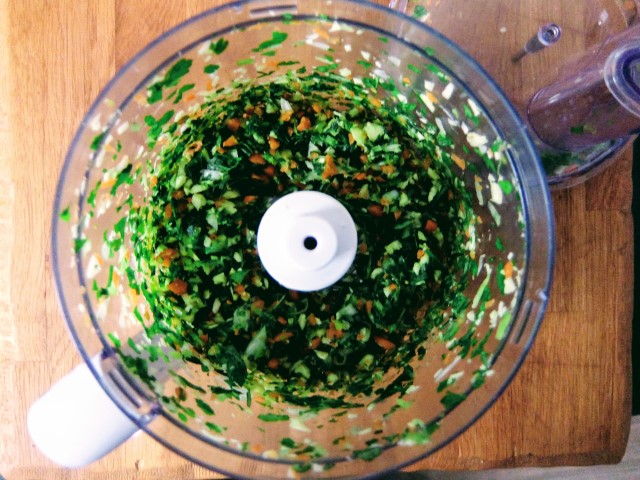
Combine the chopped herbs in a bowl with salt, use 1/3 of the weight of salt to vegetables. I used roughly 220 grams here. Stir thoroughly.
Pack into sterilised jars and seal. Store in the fridge for at least a week before using.
The salted herbs can be stored for a month or more in the fridge. Some people suggest this will last a year or more in the fridge but as the acid content is low I would err on the side of caution.
Salted Herbs Or Herbed Salt?
This is more of a seasoning and as such salted herbs should be an addition to the dish at the end, tasting to ensure things are not too salty.
Think of salted herbs as a flavoured salt and you won’t go far wrong when you add them to a dish.
Herbs And Aromatic Vegetables
Along with the herbs in this recipe it is a good idea to include some roots and aromatic vegetables like onions. This will boost flavour and give the salted herbs some depth. It is traditional to do this but ultimately the choice is up to you.
If you wanted you can use just the herbs or even a single herb if you like. I have to say I use this almost like a condiment to finish a dish so I like introducing a few flavours and use what I have to hand.
Use What You Have And Experiment
I like to use carrots, parsnips and green onions along with herbs that I have to hand and that need preserving. You may choose to just use a mixture of herbs, a single herb or onions and carrots.
What To Use Salted Herbs In?
Use these salted herbs as you would use herbs to finish a dish. Remember this is a combination of seasoning and flavourful herbs so don’t over salt your dish.
I through salted herbs in at the end of making stews, soups, ragu. Risotto. Really you can be as creative as you want. Most dishes where you would season at the end will be easily lifted by adding a spoonful of salted herbs.
